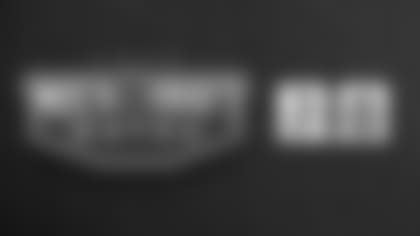Big plays are entertaining. For fans they're fun to watch and for teams they can often mean the difference between winning and losing. Such was the case last week for the Miami Dolphins. Despite controlling the clock with almost 33 minutes of possession time, outrushing San Diego by a two-to-one margin and holding the Chargers to one touchdown on six trips to the red zone, big plays did them in.
Chargers quarterback Philip Rivers threw for over 300 yards despite making just 18 completions. He threw deep just five times the whole game and completed just three of them, but they went for 18, 47 and 55 yards and set up a touchdown and a field goal in what wound up being a 10-point victory.
The Bills experienced similar success in Week 2 against Tampa Bay. Buffalo connected on just two of their seven deep pass attempts against a leaky Tampa Bay secondary, but both went for touchdowns in a 13-point victory.
The big play won't win the game for a team every week, but it will certainly help put a team in position to win as was the case for San Diego in their victory over Miami.
And the Dolphins, despite having a stout defense, are having trouble stopping big plays, particularly when defending the pass. Miami is ranked 26th in pass defense through the first three games, and when you look at the average yardage surrendered per completion the numbers get even worse.
Miami is dead last in yards allowed per completion at better than 15 yards (15.46). The Bills defense stands a solid 10th in that category (10.44/comp.). With rookie cornerbacks seeing steady playing time for Miami in Sean Smith and Vontae Davis, and the safeties having difficulty covering tight ends, opponents have had success with the big play.
Whether the Bills can take advantage of what appears to be a Miami weakness remains to be seen. When asked about making better use of the deep passing game coming off of the loss to New Orleans, Bills quarterback Trent Edwards doesn't believe the long ball necessarily needs to be a point of emphasis.
"I think we need to throw enough deep balls to win," said Edwards. "I don't know what that recipe is. I don't know how often, but it's part of the territory. You kind of have to pick and choose your spots and hopefully that leads to a win."
Edwards, to his credit, admitted he got the offense in some poor down and distance situations last week and had a turnover, but he wasn't alone. There were a handful of penalties that also compromised the success of some possessions and some breakdowns in protection, and it wound up costing Buffalo. Edwards also admitted there were some opportunities for big plays that were missed.
"This past week for a couple different reasons we were unable to get in sync," said Edwards. "Looking back on it there were some shots that we could've taken, but that's going to be a continual work in progress."
"We just didn't take chances when we had to or when we needed to and we could have," said Lee Evans. "I think that's the difference. That's the most frustrating part. We had chances and we had opportunities and we didn't take them."
After reviewing the film of last week's game even head coach Dick Jauron agreed that there were chances to make more things happen in the passing game.
"We had chances," he said. "Guys aren't always blanketed. We missed some opportunities to convert and keep drives alive."
Through three games Evans and Terrell Owens have been targeted in the passing game a total of 30 times, with Evans accounting for 17 of those targets and Owens 13. In all fairness to offensive coordinator Alex Van Pelt, it's likely that more plays were called for the team's top two receivers, but the ball was delivered elsewhere.
Still in all, it's an average of 10 targets per game between the two wideouts.
Is it enough?
Jauron believes if you have more completions than incompletions, it is. When asked if it was enough to see two deep passes thrown to Owens in last week's game against New Orleans, Jauron offered the following response.
"If you catch them both yes."
The first deep ball to Owens in the third quarter drifted closer to the middle of the field and fell incomplete. In the fourth quarter Edwards overthrew Owens on what had the potential to be a long touchdown play.
Some of those same opportunities figure to exist this Sunday in Miami. One could argue that there could be even more opportunities than last week knowing how susceptible the Dolphins have been to long completions thus far this season.
"If that's what the defense gives us I think that's the situation we need to be in," said Edwards. "But it's common sense that if there are (defensive backs) running back to the deep part of the field there's no reason to throw the ball all the way down there."
Some might argue however, that with talents like Evans and Owens the Bills should be dictating play to the opponent rather than having the defensive coverages steering Buffalo away from using some of their most dangerous playmakers.
Jauron does not believe Edwards is too cautious as a quarterback, but he does believe the team's best offensive weapons need to more effectively utilized regardless of the approach by the opponent.
"We definitely have to get (Owens) more involved in the game no matter what the defense does," said Jauron. "That's hard to do at times though because they can scheme a guy or they can scheme two guys, but it should open up other things inside. We'll take more shots."





